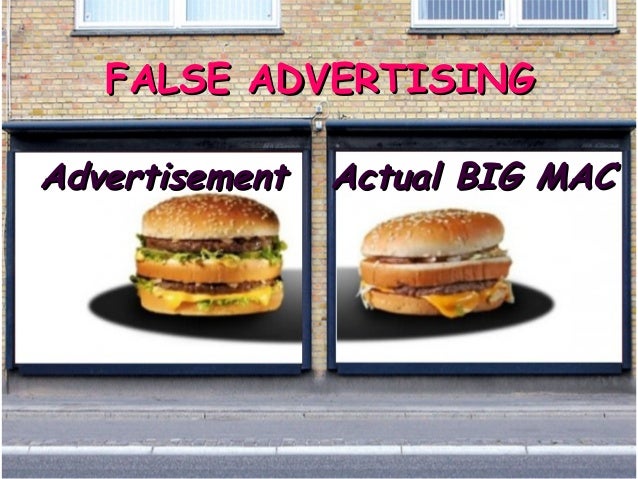Types Of Unethical Advertising
Unethical advertising is a topic that continues to garner attention in the business world as unethical practices threaten customer trust and, ultimately, a company's bottom line. In this blog post, we will delve into the types of unethical advertising and explore the impact they have on businesses and consumers alike.
The use of false or misleading claims, offensive or demeaning messaging, and infringement on privacy are just some of the pain points associated with unethical advertising. These tactics can damage a company's reputation, leading to a decline in sales and a loss of customers. Consumers who are subjected to such advertising can find themselves feeling deceived or violated, which can breed distrust and negativity towards the company that initiated the advertisement.
The goal of unethical advertising is to create a false perception of a product or service to consumers. This can range from making false claims about the benefits of the product or service to using manipulative tactics to pressure individuals into purchasing something they do not need.
Ultimately, the ethical standards surrounding advertising need to be evaluated and revisited to ensure they align with the values of consumers and the well-being of society. Companies that operate with transparency and honesty will ultimately reap the rewards of consumer trust and loyalty.
Examples of Unethical Advertising
Unethical advertising can take many forms, from false claims about products to offensive messaging or stereotypes. Images that promote negative body image or promote immoral behavior are examples of some of the most unethical advertising. Such ads can leave individuals feeling deeply hurt or offended, leading to a negative perception of the company.

As shown in the above image, an example of unethical advertising is using a stereotypical portrayal of a lawyer to promote legal services, which can be deceitful to consumers and ultimately damage the reputation of the legal profession.
Experts suggest that companies opt for more empathic, authentic, and inclusive campaigns that genuinely connect with consumers. Advertising campaigns that highlight diversity, promote inclusivity, and aspire to more significant societal good tend to be more ethical.
About Unethical Advertising
Unethical advertising can lead to significant consequences, including reputational damage and financial loss. Ensuring that advertising campaigns are scrutinized and evaluated to ensure they uphold ethical standards is critical. By operating honestly and transparently, companies can cultivate trust with consumers and reap the rewards of brand loyalty.
 Expert Suggestion:
Expert Suggestion: Experts have long suggested that companies trying to navigate ethical advertising conduct extensive research on what motivates their target audience to make informed decisions. The use of metrics such as focus groups or surveys can be a valuable tool for evaluating the effectiveness of advertising campaigns.
Tips to Avoid Unethical Advertising
Companies can opt for more empathetic, authentic, and inclusive campaigns to connect with consumers while upholding ethical advertising standards. Campaigns that uphold truth, diversity, and promote inclusivity while doing good for society are examples of ethical advertising campaigns.
Why It's Amazing To Have Ethical Advertising Campaigns
Companies that operate with integrity and honesty have much to gain by adopting ethical advertising. Ethical advertising campaigns are more likely to resonate with consumers, leading to an increase in brand loyalty, financial gains, and positive reputation.
Featured Unethical Advertising
The fashion industry, in particular, is notorious for promoting unrealistic or harmful beauty standards, which can be damaging to individuals' self-esteem and confidence. Ads that promote negative body image can be examples of unethical advertising practices.

Maintenance of Ethical Advertising
Companies seeking to embrace ethical advertising should make it a priority to focus on transparency, authenticity, and honesty in their campaigns. It is also important to keep abreast of regulatory changes or societal shifts that may affect the perception of advertisements and corresponding ethical standards.
Comparison with Other Advertising Trends
In comparison to traditional advertising campaigns that emphasize sales before anything else, ethical advertising campaigns prioritize social welfare and affirm a brand's values for long-term success.
Facts About Unethical Advertising
Unethical advertising can often lead to financial loss and damage a company's reputation. The implementation of strict advertising regulatory standards has become increasingly necessary to ensure that consumers are not subjected to deceptive advertising practices.
People Also Ask:
Question and Answer about Unethical Advertising:
Q: What is unethical advertising?
A: Unethical advertising occurs when brands mislead or deceive consumers with their marketing campaigns, which can include false or exaggerated claims, the use of stereotypes or offensive imagery, and more.
Q: What impact can unethical advertising have on businesses?
A: Unethical advertising can have a significant impact on a business, leading to financial loss, reputation damage, and, ultimately, a decline in customer trust or loyalty.
Q: How can companies avoid unethical advertising practices?
A: Companies can avoid unethical advertising practices by prioritizing transparency, authenticity, and inclusivity in their marketing campaigns, while also staying abreast of regulatory changes and societal shifts that may affect the perception of advertisements.
Q: Why is it important for businesses to prioritize ethical advertising practices?
A: Prioritizing ethical advertising practices is essential for maintaining a long-term competitive edge by cultivating trust and loyalty within the consumer market.
Conclusion
Unethical advertising is a major concern for business owners and customers alike. The use of false or misleading claims, stereotypes, or images that promote negative body image or immoral behavior is detrimental to the relationship between a brand and its customers. By adopting ethical advertising practices that prioritize transparency, authenticity, and inclusivity, companies can cultivate trust with consumers and improve their bottom line.
Gallery
What Is The Best Example Of An Unethical Advertisement? - Quora
Photo Credit by: bing.com / unethical advertisement example loading
😊 Examples Of Unethical Ads. Three Examples Of Content In Attorney

Photo Credit by: bing.com / unethical advertising examples ads marketing false ethical ethics brands attorney legal millions scandals cost
Unethical Advertisements

Photo Credit by: bing.com / unethical ads advertisements slideshare
Unethical Advertisements

Photo Credit by: bing.com / unethical
What Is The Best Example Of An Unethical Advertisement? - Quora
Photo Credit by: bing.com / unethical advertisement example examples advertisements some
Post a Comment
Post a Comment